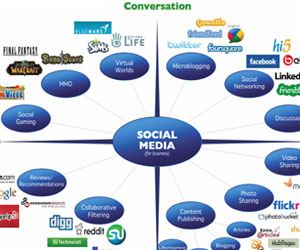



In the fast-paced digital landscape, effective internet marketing strategies are the lifeblood of success for businesses aiming to thrive in the online realm. The internet has transformed the way businesses connect with their audience, and staying competitive requires a solid grasp of digital marketing. In this article, we'll explore some key strategies that can help businesses make the most of their online presence and achieve their goals.
Search Engine Optimization (SEO): SEO is the cornerstone of any successful online marketing strategy. It involves optimizing your website and content to rank higher in search engine results. By using relevant keywords, high-quality content, and optimizing technical aspects of your site, you can improve your website's visibility and attract organic traffic. SEO is a long-term strategy that, when executed effectively, can establish your brand as an authority in your industry.
Content Marketing: Content is king in the world of internet marketing. Creating valuable, informative, and engaging content is essential for attracting and retaining an online audience. Blog posts, articles, videos, infographics, and more can showcase your expertise and provide real value to your target audience.
Social Media Marketing: Social media platforms offer an excellent opportunity to connect with your audience on a more personal level. Establish a presence on platforms like Facebook, Twitter, Instagram, and LinkedIn, and use them to share your content, engage with your followers, and build a loyal community. Social media marketing can help you humanize your brand and create meaningful relationships with your customers.
Email Marketing: Don't underestimate the power of email marketing. It's a direct way to reach your audience with personalized messages and offers. Use email campaigns to nurture leads, convert prospects into customers, and keep existing clients engaged and informed.
Pay-Per-Click (PPC) Advertising: For businesses looking for immediate results, PPC advertising can be a powerful tool. It involves bidding for ad placement in search engine results or on websites, and you only pay when a user clicks on your ad. This approach is particularly effective for promoting specific products or services or for time-sensitive promotions.
Influencer Marketing: Collaborating with influencers in your industry can give your brand a significant boost. Influencers have a loyal following, and their endorsements can lend credibility to your products or services. This strategy can expand your reach and tap into new audiences.
Data Analysis And Metrics: Effective internet marketing is data-driven. Use analytics tools to track the performance of your online marketing campaigns. Analyze data to refine your strategies, identify what works, and make data-informed decisions to optimize your marketing efforts.
Mobile Optimization: With an increasing number of users accessing the internet via mobile devices, mobile optimization is crucial. Ensure your website and marketing materials are mobile-friendly to cater to this growing audience.
In the competitive digital landscape, the effective execution of these internet marketing strategies can make all the difference. Your approach should be dynamic, adapting to changes in technology and consumer behavior. By combining the power of SEO, content marketing, social media engagement, email campaigns, PPC advertising, influencer collaborations, data analysis, and mobile optimization, you can create a well-rounded internet marketing strategy that drives traffic, engages customers, and ultimately leads to business success in the online world.
Strategies For Success
 2. Simplify The User Journey
2. Simplify The User Journey
Mobile users often have limited patience. Simplify the conversion process by minimizing the number of steps required for a user to take the desired action, whether it's making a purchase, signing up for a newsletter, or filling out a contact form. Reducing friction in the user journey increases the likelihood of conversion.
3. Clear And Compelling Calls To Action
Make sure your calls to action (CTAs) are clear, concise, and compelling. Use action-oriented language that guides users on what to do next. For example, use CTAs like "Buy Now," "Sign Up," or "Get Started" to prompt users to take action.
4. Optimize Load Times
Mobile users expect fast-loading pages. Slow-loading websites can deter potential customers. Optimize your website's load times by compressing images, minimizing code, and leveraging content delivery networks (CDNs) to ensure swift and efficient delivery of content to mobile devices.
5. Leverage Mobile-App Deep Linking
If your business has a mobile app, utilize deep linking. Deep links direct users to a specific page or section within your app, which can enhance the user experience and streamline the conversion process. This is especially effective for e-commerce apps and content-driven apps.
6. Implement Social Proof
Leverage social proof, such as customer reviews, ratings, and testimonials, to build trust and credibility with mobile users.






A Roadmap To Business Success
 Why Is Strategic Niche Selection Important?
Why Is Strategic Niche Selection Important?
Reduced Competition: One of the primary advantages of niche selection is the opportunity to operate in a less crowded space. By focusing on a specialized market segment, you face less direct competition, making it easier to capture the attention of potential customers.
Customer Relevance: Targeting a niche allows you to tailor your products or services to meet the specific needs and preferences of a particular audience. This personalization increases customer relevance, leading to higher customer satisfaction and loyalty.
Higher Profit Margins: Niche markets often allow for higher profit margins because customers within these segments are often willing to pay a premium for specialized products or services that address their unique requirements.
Expertise And Authority: When you specialize in a niche, you have the opportunity to become an expert in that field. Establishing yourself as an authority can significantly enhance your brand's reputation and trustworthiness.
How To Select The Right Niche Strategically
Market Research: Thorough market research is the foundation of strategic niche selection. Identify potential niches by analyzing market trends, consumer behavior, and gaps in the market. Look for underserved areas where your business can thrive.
Customer Segmentation: Divide your target market into distinct segments based on characteristics such as demographics, preferences, and behavior. Understand the unique needs and pain points of each segment to pinpoint the most promising niche.
Competitor Analysis: Analyze your competition to identify which niches they are currently serving and how well they are doing. Look for gaps where competitors may be falling short, creating opportunities for your business to excel.
Enhancing Success In A Mobile-First World
 1. Mobile-First Design
1. Mobile-First Design
To excel in mobile marketing, it's essential to adopt a mobile-first approach to design. Your website, landing pages, and digital content should be created with mobile users in mind from the outset. This ensures that your online assets are optimized for mobile viewing, with responsive design and fast-loading pages.
2. Performance Optimization
Mobile users are notoriously impatient, and a slow-loading website can lead to high bounce rates. Optimizing the performance of your mobile site includes compressing images, minimizing code, and using content delivery networks (CDNs) to speed up the delivery of content to users' devices.
3. Responsive Email Marketing
Email marketing is a crucial component of many mobile marketing strategies. Ensure that your email campaigns are responsive, meaning they render well on various screen sizes. Optimize subject lines, preheaders, and email content to capture users' attention quickly.
4. Mobile SEO
Mobile search engine optimization (SEO) is essential for visibility in search results. Optimize your website and content for mobile search engines. Pay attention to factors like mobile-friendly design, page load speed, and local SEO to improve your mobile search rankings.
5. App Optimization
If your business has a mobile app, ensure that it's optimized for both app stores and user experience. Utilize keywords and metadata to improve discoverability in app stores, and regularly update the app with bug fixes and enhancements to keep users engaged.
Strategies For Success In The Digital Age
 4. SEO And Visibility: Search engine optimization (SEO) is vital for ensuring your online content is discoverable. Optimize your content with relevant keywords and meta tags to improve your visibility in search engine results.
4. SEO And Visibility: Search engine optimization (SEO) is vital for ensuring your online content is discoverable. Optimize your content with relevant keywords and meta tags to improve your visibility in search engine results.
5. Embrace Social Media: Social media platforms are powerful tools for connecting with a global audience. Establish a presence on platforms that align with your audience and industry. Regularly sharing content and engaging with your followers can boost your online presence.
6. Email Marketing: Email marketing remains a highly effective way to communicate with your audience. It allows you to nurture leads, provide personalized content, and maintain strong relationships with your subscribers.
7. Consistency And Authenticity: Consistency in your online presence is essential. Maintain a regular posting schedule and stay true to your brand identity. Authenticity is equally important; be genuine and honest in your interactions.
8. Adapt To New Trends: The digital landscape is constantly evolving. To thrive online, you must be adaptable and open to embracing new technologies and trends.
Reaching Your Audience Proactively
 Television And Radio Advertising: TV and radio ads have been long-standing staples of outbound marketing. They offer a broad reach, allowing businesses to convey their messages to a large audience simultaneously.
Television And Radio Advertising: TV and radio ads have been long-standing staples of outbound marketing. They offer a broad reach, allowing businesses to convey their messages to a large audience simultaneously.
Print Advertising: This includes newspaper and magazine advertisements. While print circulation has declined in the digital age, it remains a relevant channel for reaching specific demographics.
Direct Mail: Sending physical promotional materials, such as brochures or postcards, to a targeted mailing list is a form of outbound marketing. Direct mail can be highly effective when well-executed.
Cold Calling: This involves reaching out to potential customers via phone, introducing products or services, and seeking to initiate sales conversations.
Email Marketing: Although it can also fall under inbound marketing, email marketing campaigns that send promotional messages to a purchased or rented email list are considered outbound. These messages aim to generate leads or conversions.
Trade Shows And Events: Participating in trade shows and industry events provides opportunities to showcase products and services to a relevant audience.
The Enduring Value Of Outbound Marketing
While inbound marketing has gained significant traction due to its non-intrusive and customer-centric approach, outbound marketing continues to be valuable for several reasons:
Wide Reach: Outbound marketing methods can quickly and effectively reach a large audience, making them suitable for brand awareness campaigns.
Tangible Presence: Physical marketing materials, like brochures or billboards, provide a tangible and lasting impression, unlike digital ads that may be easily dismissed.